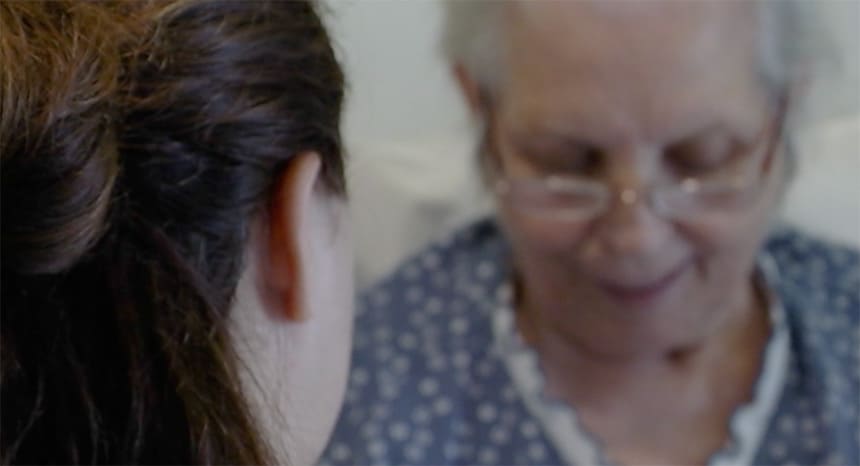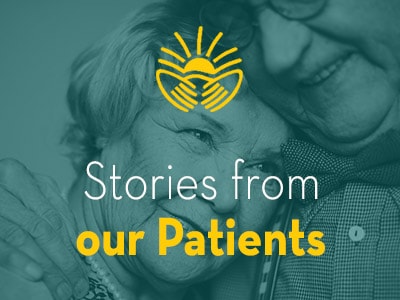Myths and Truths about Palliative Care

Truth: Palliative care includes support for patients and their families from the time of diagnosis of a life-threatening condition (such as cancer), during (“aggressive”) treatment that is intended to slow, stop, or cure the illness, during recovery or any possible recurrence as well as at the end of life. Palliative care also includes support for bereaved families.
Being referred to palliative care services does not mean that a doctor has lost hope in the possibility of a patient’s recovery from an illness.
Palliative care is also offered to those suffering from chronic illnesses.
Truth: Palliative care is suitable for anyone suffering from a chronic life-threatening illness and who faces complex problems that need to be assessed and managed by an interdisciplinary team. Apart from cancer patients, this would also include those suffering from degenerative neurological conditions, such as ALS, cardiopulmonary disease, kidney diseases, HIV and AIDS, and conditions associated with old age. One of our aims is for palliative care to be made available in Greece for those suffering from a wider range of illnesses.
Truth: Palliative care is provided by interdisciplinary teams including at the very minimum doctors, nurses, and social workers. This core team may be complemented by psychologists, priests, physiotherapists, occupational therapists, pharmacists, and volunteers.
The care may be provided in special clinics within hospitals or by an in-house hospital team who visits patients in various different clinics within the same hospital.
Most patients receive care at home from palliative care teams. In addition, community-based care can also include attending day care centre programmes, appointments at out-patient clinics (day care), and stays in a hospice.
Truth: Palliative care is NOT the same as those practices that aim to hasten death or to make it easier to die. Palliative care aims to relieve symptoms and advocates the avoidance of futile treatments that cause patients to suffer, aimlessly prolong the natural process of death, and encourage unrealistic hopes of recovery.
When someone is ill and suffering and has no hope of being cured, when they feel that they are a burden on their family who are caring for them, and when they feel that they are losing their dignity, it is likely that they will want to get out of this difficult situation at any cost and in any manner.
A palliative care team can help seriously ill patients improve the quality of their daily lives by providing support with their physical, psychological, and practical problems. They can help heal any broken relationships and support caregivers, helping patients feel loved, wanted and valued, inspiring a love of life in them once again, so that they can live every moment to the fullest instead of wanting to die through euthanasia or assisted suicide.
Truth: The aim of palliative care is to help patients and their caregivers live life to the fullest every day and achieve their smaller or greater aims, despite the difficulties caused by their illness and its treatments.
Palliative care is not only about helping relieve pain and other physical symptoms such as breathlessness, vomiting, anxiety, agitation and exhaustion. The palliative care approach also aims to support the patient and their family in managing psychological and social problems, spiritual concerns, and practical matters.
Truth: A high percentage of cancer patients experience pain as a result of their illness. However, pain is not unavoidable and with the right treatment it can be managed. Opioid analgesics can be used in palliative care, such as morphine and other drugs in particular doses and in combinations that usually achieve the desired result. In addition, through a holistic approach by health professionals and specialists and an individualised health care plan it is possible to reduce not only physical pain but also holistic pain, which is affected by a patient’s feelings, beliefs, and social activities.
Truth: Opioid analgesics are used at various stages, and the amount prescribed is adjusted according to the intensity of the pain and in order to combat pain, and not according to the stage of an illness.
Truth: It is often necessary to increase the dose of opioids when an illness progresses and pain increases, or possibly because tolerance increases due to extended use. This is not the same as addiction. Because the drug is bound by pain receptors, it affects only pain control, and not a person’s mental state in the same way as it would in the absence of pain.
Truth: When the general condition of a patient deteriorates, the sense of hunger and thirst decreases and the body prepares for the physiological process of death. Patients who stop eating die from their illness and not from starvation or dehydration. At this stage care is taken to satisfy only a patient’s needs for food and drink and we do not impose the consumption of food and water, which may create difficulties instead of relieving them. It is important in this case to ensure that a patient’s mouth is clean and moist and that it is not a source of discomfort.
Truth: Palliative care is for patients of all ages, including new-borns, children, and teenagers. While the basic principles underpinning the philosophy of palliative care are the same for children and adults, its application differs significantly. In Greece paediatric palliative care is offered by Merimna, an NGO which cares for children and families during illness and death, through the programme Palliative Care for Children at Home.


